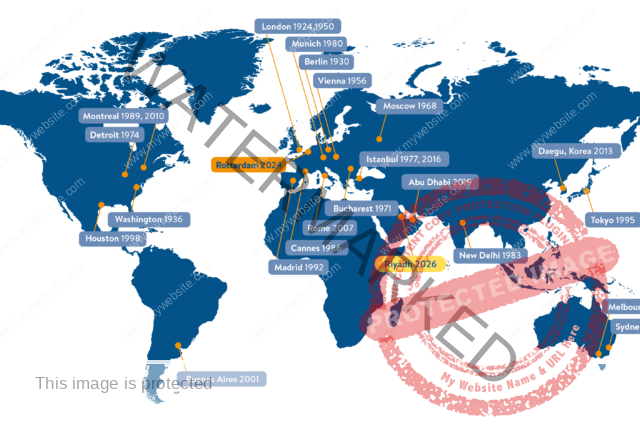The period from the 1970s to the 1990s witnessed a significant evolution in the economic and energy partnerships between France and the Arab countries, shaped by global events, strategic interests, and shifting dynamics. Here’s an analysis:
1- The Evolution of Energy Dependencies
During this period, France’s energy dependency on Arab oil-producing nations grew substantially. In the aftermath of the 1973 oil crisis, France recognized the need to diversify its energy sources and reduce reliance on a single supplier[15]. This led to increased imports of oil and gas from Arab countries, particularly Algeria, Saudi Arabia, and the Gulf states[1][5]. By the 1990s, France had become a major importer of Arab energy resources, with the Arab world accounting for a significant portion of its energy supply.
2- Key Bilateral Trade Agreements
To facilitate economic cooperation and secure energy supplies, France pursued bilateral trade agreements with several Arab countries. Notable examples include the Franco-Algerian Cooperation Agreement (1983), which aimed to strengthen economic ties and energy partnerships[6], and the Franco-Saudi Al-Khafji Agreement (1989), which granted France a stake in the Al-Khafji oil field in Saudi Arabia[1].
3- French Investments in Arab Oil and Gas Industries
French energy companies, such as Total and Elf Aquitaine (later merged into TotalEnergies), actively invested in the Arab oil and gas industries during this period. Total, in particular, established a significant presence in the United Arab Emirates, Qatar, and Yemen, participating in exploration, production, and refining activities[1][5]. These investments not only secured energy supplies for France but also generated substantial revenues and economic opportunities.
4- Development of Nuclear Energy Collaborations
France’s expertise in nuclear energy technology led to collaborations with several Arab countries interested in developing peaceful nuclear programs. In the 1970s, France signed nuclear cooperation agreements with Egypt, Iraq, and Libya, providing training, technical assistance, and the construction of research reactors[1][3]. However, some of these partnerships faced challenges due to political instability and concerns over nuclear proliferation.
5- Impact of Global Oil Crises on Franco-Arab Relations
The 1973 and 1979 oil crises had a profound impact on Franco-Arab relations. While France initially maintained a neutral stance during the 1973 crisis, it later shifted towards a more pro-Arab position, seeking to strengthen ties with oil-producing nations[15]. The crises highlighted France’s vulnerability to energy disruptions and the need for diversification and cooperation with Arab partners.

6- Diversification of Energy Sources and Sustainable Energy Initiatives
In response to the oil crises and growing environmental concerns, France began exploring alternative energy sources and promoting sustainable energy initiatives. This included investments in nuclear power, which became a significant component of France’s energy mix[8], as well as early efforts in renewable energy sources like solar and wind[9][10].
7- Economic Impact Assessment from the 1970s to the 1990s
The economic impact of Franco-Arab energy partnerships during this period was substantial. France benefited from secure energy supplies, which supported its industrial and economic growth. Arab countries, in turn, gained access to French technology, expertise, and investment opportunities[1][5]. However, the oil crises and fluctuating energy prices also posed economic challenges, leading to periods of trade deficits and economic adjustments for France[17].
8- Challenges and Controversies
While the economic and energy partnerships between France and the Arab world yielded mutual benefits, they were not without challenges and controversies. Political instability in some Arab countries, concerns over nuclear proliferation, and human rights issues occasionally strained relations[1][3]. Additionally, environmental and sustainability concerns surrounding fossil fuel exploitation emerged as growing issues towards the end of the 20th century.
9- Future Outlook on Economic and Energy Partnerships
Looking ahead, the future of Franco-Arab economic and energy partnerships will likely be shaped by the global transition towards renewable and sustainable energy sources. France’s commitment to reducing its carbon footprint and promoting clean energy technologies[16][18] may lead to a shift in its energy partnerships, with a greater emphasis on collaborations in areas such as solar, wind, and hydrogen[1][12]. However, the long-standing economic ties and energy interdependencies between France and the Arab world suggest that these partnerships will continue to evolve and adapt to changing global dynamics and priorities.
In conclusion, the period from the 1970s to the 1990s witnessed a deepening of economic and energy ties between France and the Arab world, driven by strategic interests, energy dependencies, and global events. While challenges and controversies arose, these partnerships played a significant role in shaping the economic and energy landscapes of both regions. As the world transitions towards a more sustainable energy future, the nature of these partnerships is likely to evolve, presenting both opportunities and challenges for continued cooperation and mutual benefit.



MOST COMMENTED
Book Release / Fiction / Literature / media / Podcast
Isabelle Richard’s Novel, “The Unwritten Chapter” + Podcast Review
Current Affairs / Geopolitics / Gulf / International Affairs / Iran / Islam / Israel / media / MENA Matters / Middle East / New Release / Our Books / Podcast
The Blackmail Doctrine: Trump, Israel, And The Arab Compliance + PODCAST REVIEW
Book Release / Current Affairs / Geopolitics / MENA Matters
La doctrine du chantage: Trump, Israël et la soumission des États arabes
Analyses & Commentaries / GEW Intelligence Unit / Research Paper
Iran’s Enduring Resilience: Why a Decisive Defeat is Elusive, Even with US Intervention
France / Littérature / media / Nos livres / Podcast
Le cercle restreint (Roman) : Présentation+ Podcast critique
Essais / Gulf / Iran / Israel / media / Podcast
La forteresse résiliente: Évaluer la puissance de l’Iran dans un contexte de confrontation moderne ( + critique en podcast)
Book Release / Collection: Geopolitics / Current Affairs / Iran / Podcast
The Resilient Fortress: Assessing Iran’s Power In A Modern Confrontation